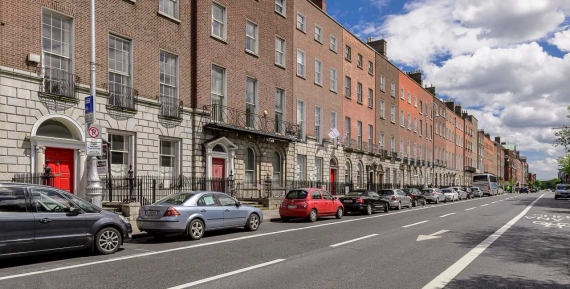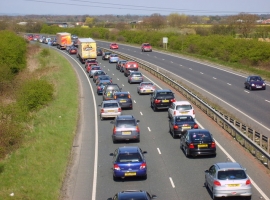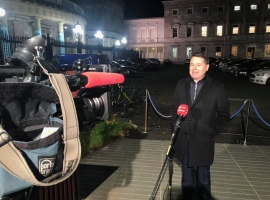
The Chairman of the National Competitiveness Council (NCC), Professor Peter Clinch, today launched ‘Ireland’s Competitiveness Scorecard 2019’ – a report that builds on the evidence already presented in the ‘Cost of Doing Business in Ireland 2019’ report and the ‘Productivity Statement 2018’.
The report provides the Council’s overall assessment of the competitiveness of the Irish economy and flags a number of areas that may be negatively impacting on competitiveness. The Council’s annual publication, the Competitiveness Challenge 2019 (due in December), will build on the evidence and make recommendations to Government on the best ways to improve competitiveness.
Ireland is ranked by the IMD as the 7th most competitive country in the world, and the second most competitive country in the euro area. The trends across a number of competitiveness indicators suggest that Ireland is in a competitive position relative to where it was 10 years ago.
However, the Irish economy continues to face a number of sustainability threats. The report warns that as a small open economy, Ireland is particularly exposed to the actions of other countries. Factors outside of Irish control (Brexit, US trade and taxation policy, Chinese economic performance) will expose any weakness in the Irish economy.
Domestically, the economy is concentrated. It remains dependent on a small number of firms, in a small number of sectors, leaving the economy vulnerable to shocks.
The Council also notes the risk of overheating which has also been highlighted by the Irish Fiscal Advisory Council, but points to the possibility that this could change rapidly in the face of an international downturn.
NCC say high and rising business costs (in credit, business services, commercial rents and insurance), environmental sustainability, and increasing skills mismatches will impact on Ireland’s future competitiveness.
Sustainability issues also arise in relation to Ireland’s commitments on climate change. The reports warns that the achievement of the targets presents an enormous challenge which required a step-change in behaviour and policy formation.
Commenting on the report, Chairman, Professor Clinch said, "In recent years, the cost-base has risen and the economy has become more concentrated in certain areas, leaving Ireland exposed to the performance of a small number of firms, trading in a relatively narrow range of products and services, and operating in a small number of sectors. Moreover, with public debt levels that are the highest in the EU, Ireland is vulnerable in the face of any future crisis."
He added, "These threats to the sustainability of the economy sit alongside other sustainability issues. Ireland is on course to fail to meet its 2020 EU commitments for reductions in greenhouse gas emissions. These continue to rise as they decrease across the EU. The Council welcomes the Government’s Climate Action Plan and notes that significant behavioural change will be required for Ireland to come close to meeting its 2030 targets."
Source: www.businessworld.ie
















